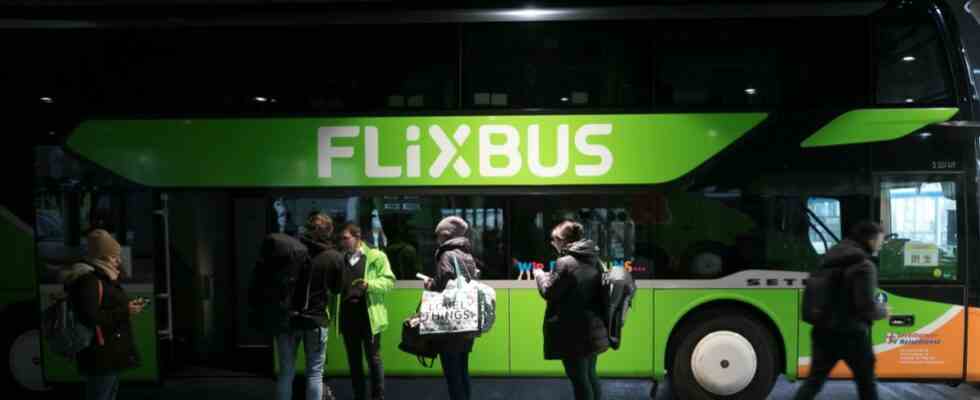If you want to get from Munich to Nuremberg, you can take an ICE train, pay 50 euros and arrive in just over an hour. Or you take an hour more and choose the long-distance bus – for only 15 euros.
This has been the case for exactly ten years. In February 2013, the Munich-based company Flixbus opened its first bus route between the Bavarian cities. At that time, the long-distance bus market was liberalized: before that, it was forbidden by law to set up scheduled services between cities that also have a rail connection. “We are proof that competition stimulates business,” says boss and co-founder André Schwämmlein proudly today.
The success of the start-up is paying off: The company is now valued at around three billion euros. However, the company remains silent about its own finances. Flixbus has not even published sales so far.
“We want to change that today,” says Schwämmlein. At least in part: the company turned over 1.5 billion euros last year, a record and almost tripling compared to the previous year, they say. Before the corona pandemic, Flixbus said it was profitable, at least in the European market. For 2022, the company is now also showing a positive annual result overall – including, for example, the US provider Greyhound acquired in 2021. When it comes to the amount of the profit, however, CFO Christoph Debus returns to silence. Just this much: He sees his company’s financing as stable and is therefore in no hurry when it comes to a possible IPO.
Many young companies have their biggest problems in the start-up phase. It was different with Flixbus: The two Corona years 2020 and 2021 were the most difficult. In Germany, for example, the company had to completely cease operations for a total of several weeks. “Politicians had great power during the Corona crisis. They could decide how people should live,” says Schwämmlein. “It’s like a drug that politics shouldn’t become dependent on.”
After the pandemic is before the Germany ticket
And after the pandemic, there is the next challenge for Flixbus. In May the Deutschland-Ticket will be available, a kind of flat rate for regional and local transport at a price of 49 euros per month. It does not apply to private long-distance bus providers. The Flixbus management therefore repeatedly emphasizes that the ticket is a step in the right direction. However, they want to be included in the tariff and be paid for journeys by the state. CFO Debus sees the current structure as a competition-distorting subsidization of the regional railways.
But Germany is just one of the company’s many markets. Just one year after the company was founded, the first buses drove to Austria and Switzerland. In addition to Europe, Flixbus is now also active in North and South America and in Turkey. Almost every fourth passenger of the company now drives there. Debus explains the importance of the country by saying that the road network there is better developed than the railways.
In Germany, too, Flixbus relies on well-developed motorways. Transport Minister Volker Wissing (FDP) wants to support this. In his message on the occasion of the company’s birthday, he says that his ministry wants to invest 8.5 billion euros in the expansion of trunk roads. Flixbus would have been more happy about a commitment to the 49-euro ticket.

